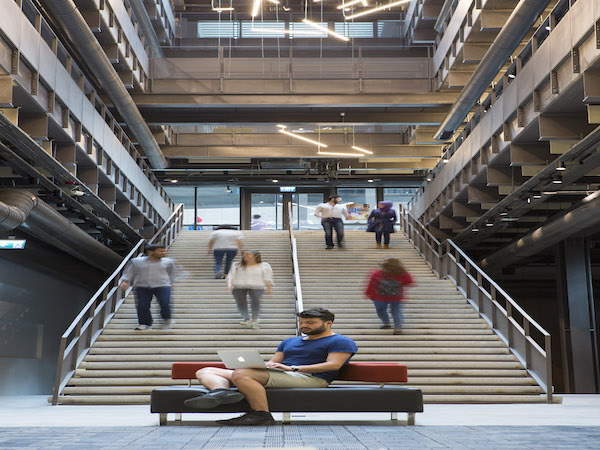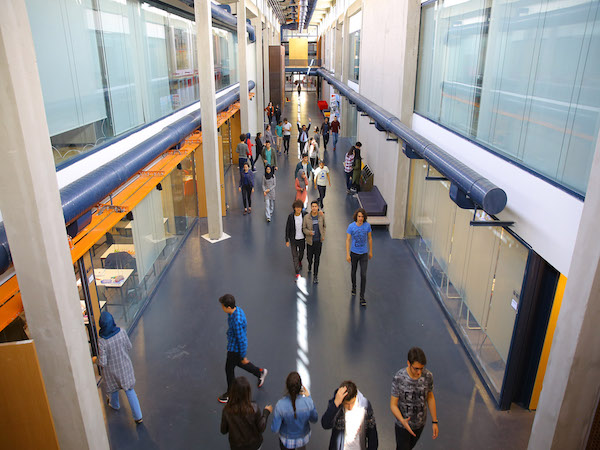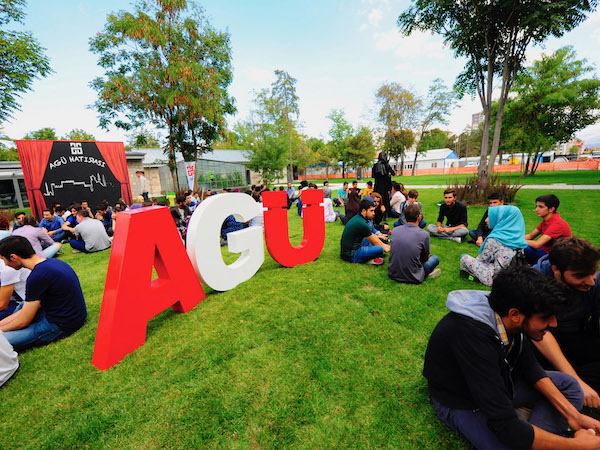Bologna
-

What is ECTS?
The European Credit Transfer and Accumulation System (ECTS) makes teaching and learning more transparent and facilitates the recognition of studies (formal, non-formal and informal). The system is used across Europe for credit transfer (student mobility) and credit accumulation (learning paths towards a degree). It also informs curriculum design and quality assurance. Institutions which apply ECTS publish their course catalogues on the web, including detailed descriptions of study programmes, units of learning, university regulations and student services. Course descriptions contain learning outcomes (what students are expected to know, understand and be able to do) and workload (the time students typically need to achieve the learning outcomes), expressed in terms of credits. In most cases, student workload ranges from 1,500 to 1,800 hours for an academic year, and one credit corresponds to 25-30 hours of work. Credit transfer and accumulation are helped by the use of the ECTS key documents (course catalogue, learning agreement, and transcript of records) as well as the Diploma Supplement. According to the latest admentment to Turkish Higher Education Law, Abdullah Gül University adopts the European Credit Transfer System (ECTS). The basic principles of ECTS are summarised in the ECTS Key Features that can be obtained from the following link of the European Commission’ official web site: http://ec.europa.eu/education/lifelong-learning-policy/ects_en.htm
-

What is Lifelong Learning Program?
The Lifelong Learning Program is the flagship European funding programme in the field of education and training. The Lifelong Learning Program covers the period 2007-2013, and is the successor to the Socrates, Leonardo da Vinci and eLearning programmes. The Life Long Learning Program supports learning opportunities from childhood to old age in every single life situation. Grants and subsidies are awarded to projects and activities that foster interchange, promote bilateral and multilateral partnerships, foster trans-national mobility of individuals and promote quality in education and training systems throughout Europe. The higher education section "ERASMUS" is named after the philosopher, theologian and humanist Erasmus of Rotterdam (1465-1536). An untiring adversary of dogmatic thought in all fields of human endeavour, Erasmus lived and worked in several parts of Europe, in quest of the knowledge, experience and insights which only such contacts with other countries could bring. ERASMUS Program contains a wide range of measures designed to support the European activities of higher education institutions and to promote the mobility and exchange of their teaching staff and students. The ERASMUS program offers the possibility of studying abroad in another European country for a period of between 3 and 12 months. Inspired by a mobility tradition that dates back to the Middle Ages, the Erasmus program and its different activities henceforth fit into the mobility policy promoted by the Bologna Process, which aims at the creation of a European Higher Education Area by 2010. Higher education plays a crucial role in producing high quality human resources, disseminating scientific discovery and advanced knowledge through teaching, adapting to the constantly emerging needs for new competences and qualifications, and educating future generations of citizens in a European context. All such functions are of vital importance to the long-term development of Europe. Inspired by a mobility tradition that dates back to the Middle Ages, the Erasmus action and its different activities henceforth fit into the mobility policy promoted by the Bologna Process, which aims at the creation of a European Higher Education Area by 2010.
-

What is Erasmus+ ?
Erasmus+ is the new EU programme for Education, Training, Youth and Sport for 2014-2020, starting in January 2014. Erasmus+ aims at boosting skills and employability, and modernising education, training and youth work. The seven- year programme (2014-2020) will have a budget of €14.7 billion. This represents a 40% increase compared to current spending levels and shows the EU's commitment to investing in these areas. Erasmus+ will provide opportunities for over 4 million Europeans to study, train, gain work experience and volunteer abroad. In addition to providing grants for individuals, Erasmus+ will support transnational partnerships among Education, Training and Youth institutions and organisations to foster cooperation and bridge the worlds of Education and work in order to tackle the skills gaps we are facing in Europe. It will also support national efforts to modernise Education, Training and Youth systems. In the field of Sport, there will be support for grassroots projects and cross-border challenges such as combating match-fixing, doping, violence and racism. Erasmus+ brings together seven existing EU programmes in the fields of Education, Training and Youth; it will for the first time provide support for Sport. As an integrated programme, Erasmus+ offers more opportunities for cooperation across the Education, Training and Youth sectors and is easier to access than its predecessors, with simplified funding rules. Description Education, training and non-formal youth learning are essential to creating jobs and improving Europe's competitiveness. Over the next seven years, Erasmus+ will provide €14.7 billion to strengthen education, training, youth and sport in Europe, allowing more than 4 million young people to gain experience and skills by studying, training or volunteering abroad. The programme will also support over 125,000 institutions and organisations to work with peers in other countries to innovate and modernise teaching practice and youth work. Together they will help ensure that young people and adults get the skills they need to succeed in today's world. For further information kindly visit the following websites: http://ec.europa.eu/education/erasmus-plus/index_en.htm Erasmus + Programme Guide: http://ec.europa.eu/programmes/erasmus-plus/documents/erasmus-plus-programme-guide_en.pdf Turkish National Agency : http://www.ua.gov.tr/en/home





